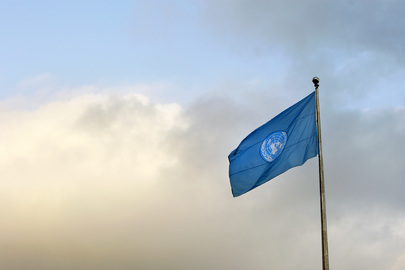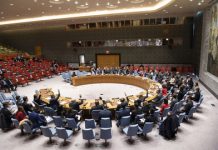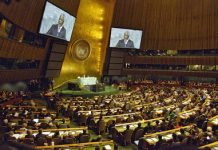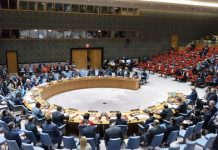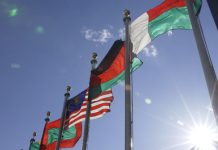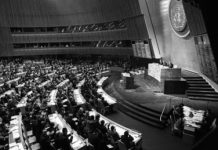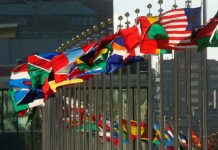That’s where the Sevilla Platform for Action (SPA) comes in – a major step to begin implementing the Seville Agreement without delay.
It features over 130 concrete actions to support the renewed global financing framework that world leaders just adopted at the international conference.
They will help countries mobilise resources for an SDG investment push, build developing countries’ development capacity, help address the sustainable development debt crisis, and take steps to improve the system by which the developing world can borrow money for national investment without crippling debt burdens.
Launching the platform, Spain’s Prime Minister Pedro Sánchez, highlighted the urgency of collective action saying the platform represents “a critical opportunity to restore trust in multilateralism and deliver tangible financing.”
UN Secretary-General António Guterres underscored the importance of the SPA as a catalyst for joint action and delivery.
In a world divided, it is “a springboard towards a more just, inclusive and sustainable world for all countries,” he said.
Countries can make up for absence of US
Speaking earlier at press conference for the hundreds of journalists here in Sevilla, he said the absence of the United States which left negotiations earlier this month was a challenge but there are always ways to raise the money needed: “It’s a question of political will.”
This can be done if leaders are willing to take the necessary measures such as working through multilateral development banks and carbon taxes, for example.
Power shifts
“To have the United States on board would be excellent but it can be done in any case by those willing to do so.”
“I have a clear message to the powerful,” the UN chief continued. “It’s better to lead the reform of the system now than to wait and eventually suffer the resistance later when power relations change.
“And I believe that the reforms that are proposed in Sevilla in line with the work that was done in the Summit of the Future are reforms that are absolutely needed both for developing and developed countries.”
Following the opening remarks, interventions demonstrated strong political commitment to start implementing the historic funding agreement.
Notable initiatives include a global hub for debt swaps for development at the World Bank and a debt pause clause alliance – championed by Spain and a coalition of partners.
Sevilla Platform for Action at a glance:
- It aims to bring together countries, organisations, businesses and others to make real, measurable progress in tackling global financial and development challenges.
- Any group – from governments to charities, businesses to universities – can put forward a new or significantly expanded plan that supports the UN’s sustainable development goals.
- Proposals must set out clear, achievable actions with specific results, a timeline, and show how they will be funded.
- Submissions were open from 1 May to 6 June 2025, using an online form.
- Each plan had to name the lead group behind it, list any supporting partners, explain what makes it new or ambitious, and include a communications plan.
- Selected initiatives will be presented to the public and media during FFD4 in Sevilla.
- All approved commitments will be listed online, with progress tracked and reported through future UN reviews and meetings.
‘Everyone’s business’
A further essential part of turning words in Sevilla into action on the ground, is mobilising the business community.
Business leaders on Monday issued an urgent appeal to unlock more private capital at the opening of the International Business Forum on Monday.
António Guterres told delegates: “Development is everyone’s business”, emphasising the private sector’s essential role alongside public institutions in achieving the SDGs.
Sevilla in the south of Spain is the venue for FFD4.
Five priorities for delivery
A new communique from the conference’s Business Steering Committee – co-chaired by the International Chamber of Commerce (ICC) and Global Investors for Sustainable Development (GISD) – outlines five priority areas for action:
- Create more ways to invest in development: Set up tools and platforms that make it easier and safer for private money to flow into projects that help people, especially in poorer countries.
- Work more closely with governments: Join forces to plan and support projects from an early stage, making them ready for investment.
- Make sustainability rules clearer and more consistent: Align standards across countries so businesses can invest more confidently and support national development goals.
- Fix financial rules that get in the way: Update regulations that make it harder to invest long-term in developing countries.
- Help small businesses get funding: Improve access to finance for entrepreneurs by reducing risks and partnering with development banks and governments.
The communiqué complements the newly endorsed Seville Agreement and business leaders described the moment as pivotal. “Private finance is essential to bridge the global gap,” said José Viñals, co-chair of GISD.
At the forum, developing countries are showcasing over $1 billion worth of investable projects in sectors including energy, agriculture and digital infrastructure.
“The focus now must be on action,” said UN economic chief and conference Secretary-General Li Junhua.
Source of original article: United Nations (news.un.org). Photo credit: UN. The content of this article does not necessarily reflect the views or opinion of Global Diaspora News (www.globaldiasporanews.com).
To submit your press release: (https://www.globaldiasporanews.com/pr).
To advertise on Global Diaspora News: (www.globaldiasporanews.com/ads).
Sign up to Global Diaspora News newsletter (https://www.globaldiasporanews.com/newsletter/) to start receiving updates and opportunities directly in your email inbox for free.


